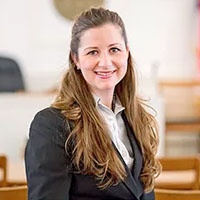Winfall Credit & Debt Lawyer, North Carolina
Sponsored Law Firm
-
 x
x

Click For More Info:
-
Oliver & Cheek, PLLC
405 Middle Street New Bern, NC 28560» view mapBankruptcy & Debt Law Your Business Partner
Oliver & Cheek, PLLC is a full service business firm providing a wide range of legal services to clients in North Carolina.
252-633-1930
Not enough matches for Winfall Credit & Debt lawyer.
Below are all Winfall lawyers.
Janice R. Mckenzie
Traffic, Immigration, Family Law, Criminal
Status: In Good Standing Licensed: 45 Years
 George Oliver New Bern, NC
George Oliver New Bern, NC AboutOliver & Cheek, PLLC
AboutOliver & Cheek, PLLC Practice AreasExpertise
Practice AreasExpertise

